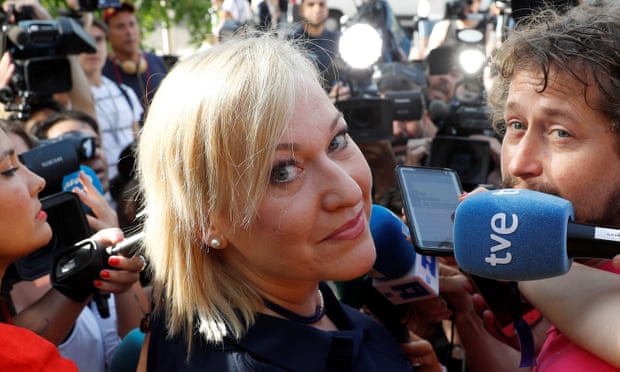DNA Database Helps One of Spain's "Stolen Babies" Find Family
Agence France-Presse
The first woman recognised by Spanish courts as one of the “stolen babies” of the Franco dictatorship has discovered her biological family thanks to a DNA database. But Ines Madrigal, 50, has also said she learned from her newly discovered relatives that her mother gave her up voluntarily. Scores of babies were taken from their mothers – who were told that their children had died – and given to others to adopt during the 1939-1975 dictatorship, often with the help of the Catholic church. Initially, babies were taken from leftwing opponents of the regime, with the practice later expanded to supposedly illegitimate children and those from poorer families. The newborns were meant to be raised by affluent, conservative and devout Roman Catholic families. Estimates range from hundreds to tens of thousands of victims. On Thursday, Madrigal, who found out in 2010 that she was a stolen baby, said she had been able to find a cousin thanks to a DNA database. The cousin then informed her that her biological siblings were also searching for her. “For the first time, I have completed the puzzle that is my life,” she said. “I know who I am and where I am from.” Madrigal said she discovered that her biological mother, a woman named Pilar, died in 2013 at 73. “Pilar never knew if I was a boy or a girl, but I know that she never forgot me,” she said. “I have four brothers who I have met, who are wonderful people and who have opened their arms and heart to me.” Madrigal did not want to reveal the identity of her biological family in order to protect their privacy. A Spanish court last year found a former gynaecologist guilty of having taken Madrigal in 1969 from her biological mother shortly after she was born at the now defunct San Ramon clinic in Madrid. But the statute of limitations saved him from conviction over his role in the scandal. The revelation that Madrigal’s mother gave her up willingly appears likely to hurt her chances of getting a verdict against Vela when Spain’s supreme court hears her appeal against last year’s ruling at an as yet undetermined date. The state prosecutor’s office in Madrid issued a statement on Thursday to say that given the new twist in Madrigal’s case, it does not consider that she was stolen. But Madrigal said she remained convinced that Vela broke the law by hiding her true origins. “He should have registered my birth and he did not do so,” she said. “He treated me like a puppy. The state never knew I existed.” Madrigal’s is so far the only stolen babies case to make it to the trial stage. Most other lawsuits have been rejected in the past by courts because they came after the statute of limitations expired. Spain started investigating the stolen babies cases only a decade ago, when the magistrate Baltasar Garzon opened an inquiry into the more than 30,000 children who were under the care of the rightwing regime.
|
.
Any original material on these pages is copyright © BishopAccountability.org 2004. Reproduce freely with attribution.
